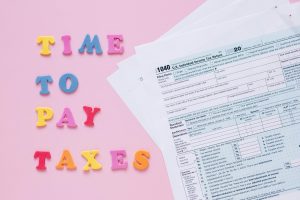Bankruptcy Filings Surging in Economic Downturns
The COVID-19 pandemic has had a significant impact on the global economy, with many businesses struggling to survive and individuals facing job losses and financial insecurity. And as the economy takes a turn for the worse, there has been a noticeable increase in the number of bankruptcy filings. In fact, according to recent data, bankruptcy filings have surged during economic downturns. In this article, we will explore the reasons behind this trend and its implications for individuals and businesses going forward.
Understanding Bankruptcy Filings
To fully understand the surge in bankruptcy filings during economic downturns, it is crucial to first understand what bankruptcy is and how it works. Bankruptcy is a legal process through which individuals or businesses who are unable to repay their debts can seek relief from their creditors. It allows the debtor to either eliminate or restructure their debts and start fresh financially.
There are different types of bankruptcy, but the two most common types are Chapter 7 bankruptcy and Chapter 13 bankruptcy. Chapter 7 is also known as liquidation bankruptcy, where non-exempt assets are sold to repay creditors. Chapter 13, on the other hand, involves creating a repayment plan to pay off debts over a period of time.
The Link Between Economic Downturns and Bankruptcy Filings
Job Losses and Financial Hardship
One of the main reasons for the surge in bankruptcy filings during economic downturns is the increase in job losses and financial hardships. Many businesses have been forced to close their doors or reduce their workforce due to the economic impact of the pandemic. This has left individuals without a source of income and struggling to make ends meet. As a result, they may turn to bankruptcy as a means of relief from their overwhelming debts.
Decreased Disposable Income
In addition to job losses, economic downturns also lead to a decrease in disposable income for individuals and businesses. As the cost of living rises and job opportunities become scarce, people are left with less money to pay their bills and debts. This reduced cash flow can make it difficult for individuals and businesses to keep up with their financial obligations, leading to bankruptcy as a last resort.
Creditors’ Stricter Measures
In an attempt to safeguard their own interests, creditors may become more aggressive in their collections efforts during economic downturns. This can include wage garnishment and repossession of assets. As a result, individuals and businesses facing financial difficulties may see bankruptcy as the best option to protect themselves from further financial harm.
The Consequences of Bankruptcy Filings During Economic Downturns
While bankruptcy may offer relief to those struggling with overwhelming debt during economic downturns, it also comes with consequences. For individuals, bankruptcy can negatively impact their credit score and make it difficult to obtain credit in the future. It may also lead to the loss of assets, depending on the type of bankruptcy filed. For businesses, bankruptcy can result in closure and loss of jobs for employees.
Moreover, the increase in bankruptcy filings during economic downturns can have a ripple effect on the economy as a whole. It can weaken consumer confidence and decrease spending, which can further slow down economic recovery.
In Conclusion
The surge in bankruptcy filings during economic downturns is a concerning trend that highlights the financial struggles many individuals and businesses face during difficult times. While bankruptcy may offer relief, it is important to consider its long-term consequences. It is also crucial to seek financial advice and explore other options before deciding to file for bankruptcy. As we navigate these challenging times, it is essential to keep a close eye on economic trends and be proactive in managing our finances to avoid falling into overwhelming debt.










